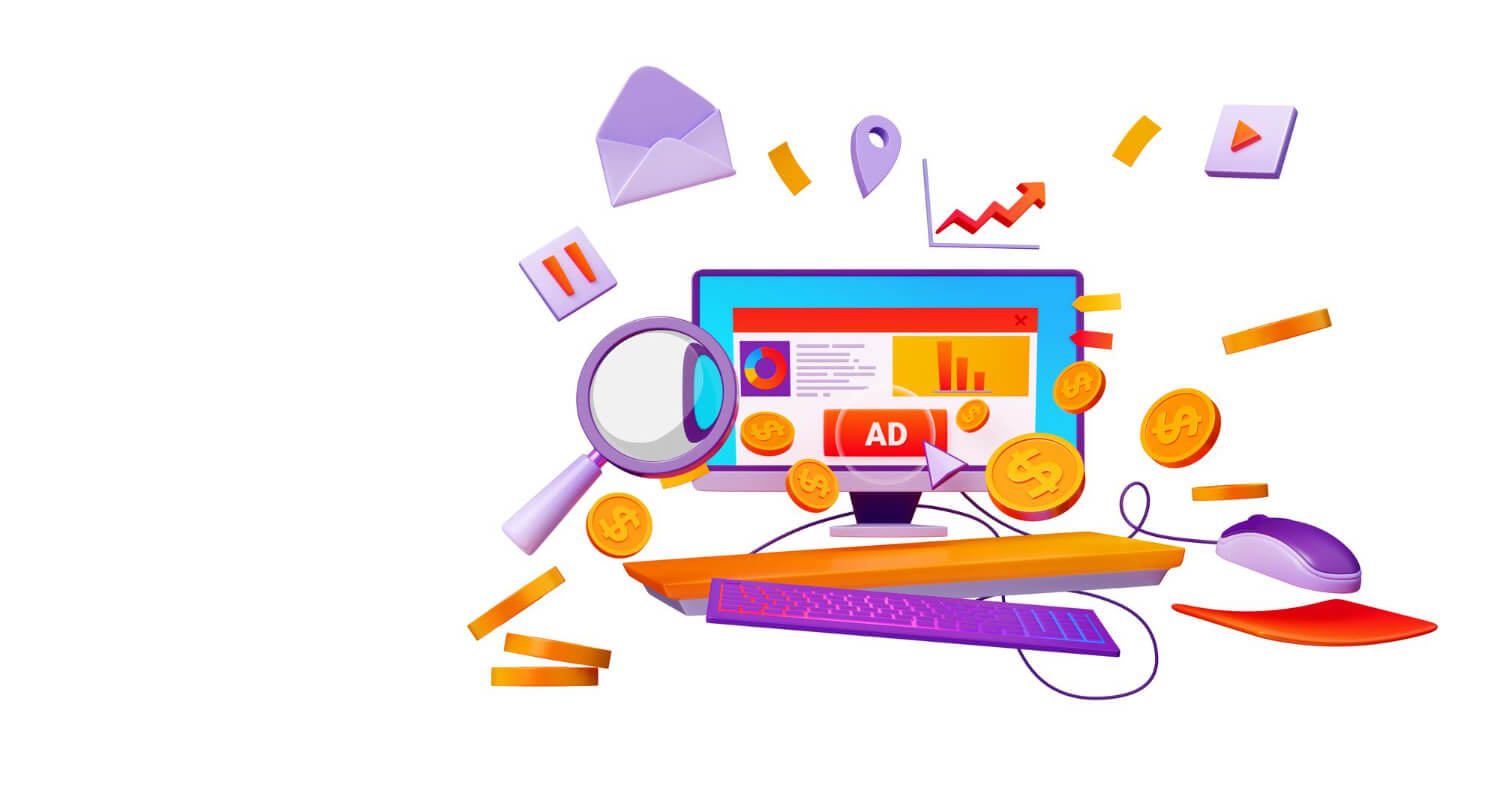I'm sure you heard about the word “PPC” before and were probably wondering what it means. PPC in short stands for Pay Per Click and it's and online advertisement model.
What PPC is
Let's have a deeper look. As mentioned above, PPC is an online advertisement model where advertisers pay a certain fee every time their advertisement is clicked on. I'm sure you have seen “sponsored” right on the top of the search results every time you searched for something on Google. That's PPC and every time you click on it, the advertiser will be charged. It's an instant way of attracting visitors to your website.
How does PPC work?
I'm sure you're tired of keywords already as we talked about them a lot especially in the SEO posts but keywords are super important part of a PPC advertisement campaign as well. So to start with, all you need to do is choose keywords that you want your website to come up for when people search for those particular keywords. Let's break this down. Let's say you have a digital agency based in Dorset. You will choose keywords like “Digital agency” so when someone is looking for a digital agency near you then your website will appear as “sponsored” right on the top of the search results and if people click on it, you will be charged. Simple as it is. What happens if there are multiple digital agencies around you that are running an advertisement for the same keywords? You are about to find out:
Ad Auction:
This is an automated process where search engines determine the relevance and validity of the advertisements that appear on their SERPs (Search Engine Results Pages). Each ad has a certain Quality Score (which is a metric based on the relevance of your keywords, the quality of your landing page, and the Click-Through Rate). The combination of the Quality Score and the bid amount determines ad placement.
Why use PPC?
Unlike SEO (Search Engine Optimisation), which requires lots of time to build up organic traffic for your website, PPC campaigns can generate immediate traffic. PPC campaigns are the best targeted advertisement methods out there. Your Digital Agency can target demographics, locations, devices, times of day, and a lot more for you to make sure your ads are only shown to the most relevant audience. All you need to do is sit back and wait for customers. You can easily measure the results of your campaign with Google Analytics. You can anything from the numbers of clicks and the impressions to conversions and ROI (Return on Investment). There is also a way to set your budgets to make sure you don't spend mire than you intended to.
Where can you use PPC Advertisement?
Surprisingly it's not just Google but Google is definitely the most popular. Let's see what else is out there.
- Google Ads (formerly AdWords): The largest PPC platform. Advertisers can display their ads on Google's search results, YouTube, and other Google properties.
- Bing Ads: Microsoft's answer to Google Ads. Though it has a smaller audience, Bing Ads can offer lower costs per click and less competition.
- Social Media Platforms: Sites like Facebook, Twitter, Instagram, and LinkedIn offer PPC advertising options as well. These platforms provide detailed targeting based on user profiles and behaviours.
Setting up a successful campaign
For beginners it's not advised to set your own campaign as it's so easy to make a mistake and some of them cannot be rectified. It's better to consult with a Digital Agency that can help you get started. Here are some basic steps:
- Research: Start by researching your target audience and the keywords they might use to find your product or service.
- Set a Budget: Decide how much you want to spend daily or monthly.
- Create Your Ads: There are a lot more to this, but in a nutshell, write a compelling ad copy, and if the platform allows, add images or videos. Ensure that the landing page you're directing traffic to is relevant and user-friendly.
- Implement Tracking: Use tools like Google Analytics to track the performance of your campaign.
- Optimise: Continually monitor your campaigns. Adjust bids, test new keywords, and refine ad copy to improve performance.
What to avoid
- Neglecting Negative Keywords: Negative keywords prevent your ad from being triggered by certain words or phrases. They help filter out irrelevant traffic.
- Ignoring Mobile Users: More and more searches are happening on mobile. Ensure your ads and landing pages are mobile-friendly.
- Forgetting About Ad Extensions: Ad extensions (like phone numbers, location, or additional links) can make your ad more clickable.
It's very important to set up your campaign well to make sure you get the most out of your money and of course, PPC advertisement is a super powerful tool to attract more customers. If you are a beginner, research, learn a lot, start small and gradually increase the size of your campaigns. If you would like to hand this over to a professional Digital Agency, then we are here for you!



